I recently attended a thoughtful and thought-provoking webinar conducted by Ira Socol. If you are a twitter user, you may recognize him as @irasocol. The result of this webinar was the identification of yet another needed skill that our education system needs to address with passion, the skill to verify truth in information. Of course this is just another skill to be added to a long list of skills that educators must prepare our students with, if kids are to be successfully educated. By the way I don’t think this skill is represented on a standardized test.
The failure of our education system to address this skill is evident and underscored each and every day in the news. Technology has given us the ability to store and enable access to a huge amount of information which continues to grow exponentially. The information however, is both correct and incorrect, both true and false, both fact, and fiction. The skill to not only be able to obtain the information, but to also verify its truth, is essential. A reason to support public education is the necessity to educate the population of our democratic society to make intelligent choices of those issues which will affect the lives of all citizens. If people are basing their decisions on false information, the intended outcome will not be successful.
Consider the emphasis that our news agencies now place on the popular man/woman in the street interviews. People are asked their opinions on topics without regard to how well they are prepared for that opinion. This has been referred to as “Opinion without Portfolio”. Yet, after the opinion is given, it makes the airways without verification of the truth. To continue the process we have a large number in our society that believe, if it is on TV, it must be true. If we needed a life saving operation, would we go to the person on-the-street interview to consider our choices?
Consider the role of Polls in newscasts. If we think of a poll as a type of formative assessment or a snapshot of public support of an issue, it is valid. When the opinion poll and individual contributions to that poll are featured as the focus of the story it is a problem. The opinion is then presented as fact and it, at the very least, muddies the issue.
Consider the TV ads for Cable, Satellite, and Verizon. Each claims to be giving the facts as the truth. When we compare the facts of each, we must determine someone is being less than truthful. We do not hold anyone accountable we just believe whichever one we like without verifying what is true.
Joe the Plumber was my favorite. He was a plumber who asked, then candidate, Obama a question about taxes and starting his own Plumbing company. Joe was then catapulted to fame as an expert on taxation, free enterprise, and entrepreneurship. He was even a highlighted speaker at John McCain rallies. He was interviewed several times, as if he was an expert, and those interviews were broadcast to the American public. His credentials were never questioned until after the election and his 15 minutes of fame had been somewhat dulled by the facts.
Politicians are the worst offenders in our efforts to teach the skill of verifying the truth. Members of both political parties claim to be representing what the American People really want. This is not a stretching of the truth but an outright lie on the part of both parties. A plague on both of their houses. Now, we have the Birthers, those claiming the President is not American. There are also the experts who claim there are Death Panels in healthcare plans. What about legislation that will be “breaking the bank” or” saving the ranch”? We have become a society of extremes with the truth being lost in the middle.
If we are to be considered good educators we need to be able to instill in our students a need to strive for the truth. They need to be able to determine what information is of value. If information is the food of knowledge, then we need not consume food which has no nutrition at the best, or is poisonous at the worst. This is difficult for educators to do, for if we teach our students to question, they must question us as educators as well. “Be careful what you wish for!” comes to mind. Where does this skill fit in a list of all of the other skills that educators are now required to teach? Is this for the English teacher, or the social studies teacher, or the science teacher? Of course Math is always truthful. That is probably why it is so hard.
As always I come away with more questions than answers. I do believe however, that an important question was posed by Ira Socol: “How do we know that’s true?” This must be asked by everyone in our democracy and it is the educator’s responsibility to make it so.



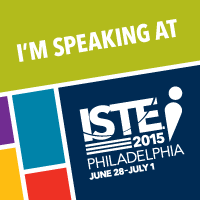


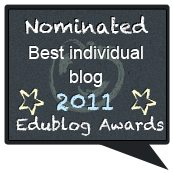
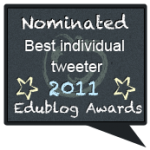
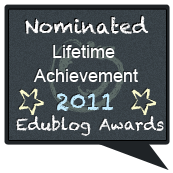

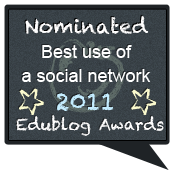
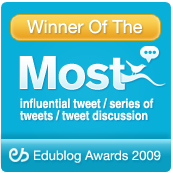
I am glad that you raised this very important point. That is the reason that I made my Evaluating Websites page on my website:
http://cybraryman.com/evaluating.html
Well done as usual!
Tom,
Your post captures the essence of my grave concern about what I label as the opinion before-or-without fact voices promoted by our U.S. media today. It speaks to why we must shift focus from content-driven standards where low levels of recall and understanding are the expectation for teaching and testing to performancev standards emphasizing critical analysis, reasoning, and evaluation processes as the expectation for lifelong learning. I almost exclusively watch or read international news to access “slow” news that allows me to learn, process, and think about the information I am hearing. Often, what I hear causes me to dig deeper for more background knowledge. The current media news entertainment industry in this country is a compelling reason why we need to set our sights on a Renaissance model in which our learners become thinkers, not recallers. Thank you for picking up on @irasocol’s perspective. Trust- but verify.
Tom, teacher-librarians consider this to be one of the most important skills we teach. When we collaborate to plan, co-teach and assess research lessons and units with classroom teachers, we are always adressing this through modeling, direct instruction and discussion. This is at the very heart of information literacy and
media literacy, which are the core of the AASL Standards for the 21st Century Learner. So- classroom teachers, seek us out! We can help!
I agree completely. One of the most difficult things for students to understand is that the information they find may not be correct. We do try to work hard on webpage evaluation specifically, beginning in 5th grade. Unfortunately, some students are still of the mindset that if it’s published it’s true. An ongoing battle —
As a history teacher, I try to teach my students to always look for the other perspective, to seek to understand how the losers or the “bad guys” rationalized their ideas and choices. I want them to understand complexity. I try to then make the connection to the present and to their own understanding of the world and current issues. I want them to seek more than what is on the surface or in the news flash. It is about accepting that they must always look deeper than the surface to understand and to find truth.
This is a really important and interesting task for all educators in this world that is swirling with “facts” and opinions.
You are correct that we must teach the students to question any “truth” the point is what “truth” actually means. I am reminded of the fact that up to comparatively recently in our sojourn on this planet the Sun was considered to revolve around our Earth.. this was the accepted “truth” because the Church said it was.
Science has been one long fight against accepted truths. In the realms of politics therefore we are in much muddier waters. When I studied Political Science as a student I was told that there are no definitive “truths” but just different ways at looking at the world.
Our students need to have the chance to learn to think for themselves and question. They need to question the media that bombards them all the time every day of their lives and they need to develop their own way of looking at the world. The best teachers, ever since Aristotle, have tried to emphasise this central idea in education.
Curriculums designed to teach this have been out for years, purchased primarily by homeschools and a few private schools. For instance, one exercise presents various perspectives on what really caused the Salem Witch Trials. It is a great lesson on the psychological, philosophical, medical, and physical influences on both history and historical interpretation. What are primary sources? How can you tell if a source is credible? How do you evaluate credentials and experience?
In my work at the Philip Foster Farm, I train kids to give tours of the site. Now THEY are the “experts” and can easily lead people astray. I hope this is one of the lessons they learn from this experience: Just because someone thinks they know something doesn’t make them an expert, even if they have been given a platform.
This was a thoughtful reflection and I appreciated reading the comments.
Excellent post Tom. As I always tell my students the famous quote – History is only ever written by the victor. We have great debates on how valid information is and often discuss urban myths that the students often think are true (as does my mother in law from the amount of emails she forwards to us!). So many of my students know someone who knows someone who…… you get the picture.
This is such an excellent post. It is amazing to me how people will just accept what they read and hear to be “truth.” When I was in the classroom, I used to teach my seniors how to evaluate websites for accuracy when they were doing research. The importance of balancing or evaluating the “truth” became very real in our small community when our pastor was accused of “things.” It was amazing how many people believed our local newspaper and TV news before they learned the real “facts” of the matter. Long story short, our pastor was absolved of the accusations; however, he is no longer our pastor. He rode the storm for three years, but then his health began to suffer from the continuing stress.
Thanks again for your post.
Information literacy is so important today. As a student, I completely appreciate your advice to instructors. Everyone, not just students, should seek the whole truth and ask the easy and tough questions. I think people need to take responsibility finding the truth, and not simply repeat their most favorite campaign.
Absolutely love your comment about Math being so honest, thus so difficult.
Great post!
One of the keys to seeing this through is improving the literacy level of our students. The Web generation is used to receiving their information in very small tidbits. Typically to uncover truth a person needs to delve deeper and read more in depth. This skill is what is missing. The students have the capacity to find the truth but they lack the desire, and in some cases ability, to read comprehensively.
Thanks for sharing this, Tom, and for encouraging comment, including a final call
Taking intelligence as the ability to assign relative importance, my goal to achieve a sense of information literacy swirls around data, filters, verification, awareness of context and assessing relative truth – for oneself. Not easy to live with the shades of gray between true, maybe, and false. Yet, I believe, multi-valued logic is an essential mental wraparound for the exponential growth of both knowledge and noise. Up to now, we seem to have few convenient words, even stumble at “truer than” or falser than”.
If this sounds strange, my apologies. To tell the truth (as if anyone ever would not try), I am only a naive English speaker (not native) with a viewpoint and respect for other’s views. “Because they learn me”, ha!
If you are looking for an illustration for the dilemma, feel free to use this:
http://twitpic.com/1a5ee4 – How can you trust? Image (i) inspired by @VenessaMiemis,@tomwhitby, and the trust networks illustration by Gistics.com http://bit.ly/9imB5C
Thoughtful and well said. We need to give greater consideration to the literacy skills of special needs students who rely on adults for the truth. How can we teach them to verify facts? Many don’t even question what we tell them.
I agree with Malbell… ‘truth’ is a multi-sided perspective, and always subject to subjectivity, bias, cultural background, religious background, and even one’s mood. Instead of truth, maybe the world ‘reliable’ is better?
Students need to understand what a reliable vs. non-credible source of information is. Further, they need to learn how to address the perspective of the source. For example, The Economist is an excellent source of information…but one should know that they swing rightward. It is as important to know where they are writing from as it is to know if they are credible or not.
The cognitive skill of analyzing a source of information for reliability does need to be taught more, without a doubt…students today do not know how to evaluate a reliable from junk source online. I see it all the time in the courses I teach online.
This skill should be the first thing a teacher goes over in every class they teach…the very first lesson. Also, teachers should offer students a list of online reliable sources on the course topics to be used, as often they don’t know what they would be, and don’t even know where to start looking. It is not always easy to find them in a Google search.
I hear one can now buy a “Joe the Plumber” doll… 😉
Thank you for the thought-provoking blog. It occurs to me that most teachers would be proponents of teaching students how to determine what information on the internet is of value.
In some areas, I wonder if we can know the truth. I’m especially thinking of History. People from different cultures believe different versions of the same facts. If you looked at a French social studies book, you would see a totally different story about World War II than the one we were taught in the U.S. So whose truth are we telling?
There is so much information available to students that they need to be explicitly taught how to evaluate data.
We have a saying around my house. When one someone’s spouting some sort of rhetoric, another someone is bound to ask for the first’s sources. A simple “My doctor told me” is all it takes to settle the argument. It immediately turns the debate to silliness while pointing out both that the speaker doesn’t really have a good case and also that nowadays, that doesn’t really matter…
Elevating doctors to god level, however, is a few steps above where most of my high-school English students step into the research process. Most of them are satisfied with a simple, “I got it off Google,” and crinkle their noses in disgust when I send them back for more information. They don’t want to think because, for one, they don’t know how and, for another, they don’t see the importance of it. Mucking about in morally gray (or, let’s face it, even flat-out wrong) is fine if it’s all you’ve ever known.
“Who is this kdm457?” I ask.
“Um, the author?” a student replies.
“Why are you going to trust this person?”
“Um…”
After I started accepting sources for research only when accompanied by proof that that source is an expert in the field, I found some relief. Even now, though, I have students turning in Wikipedia pages and forum posts by unknown people. And I get to go through the process of explaining once more.
Thanks for the thoughtful post and comments. 🙂
So true! Your examples of news stations blurring fact and opinion were especially poignant. (What about news stations citing Twitter as evidential support that the country holds a certain opinion? I find that trend especially bothersome). As an aspiring speech/debate teacher (I’m preservice) this issue is especially significant to me, because it is the foundation of rhetoric–seeking credible evidence and speaking truthfully without losing your powers of persuasion. I believe technology is a key element of this issue: kids have the entire world in a phone in the pocket of their jeans, and they need only do a simple google search to find thousands of contradictory statements to any given, factual claim. To reverse this societal trend educators must (among other things) stress technological tools more, to ensure young people understand what sources are true and which are spin. We’re unleashing kids to all sorts of unprecedentedly powerful technology, and unless we give them the skills and the savvy to use these tools effectively and discern between truth and opinion, they will simply perpetuate the poor “research” trends we are currently observing in the news media.
Good book on the subject: How We Know What Isn’t So.
I agree completely. And my kids see me yell at the TV during the news because their coverage so rarely includes any investigation!
Thanks for sharing this. It is such an interesting post!
Mr. Whitby,
Thanks for sharing this reflection with the world. I agree that as a future educator, I must teach my students to obtain information and verify its truth. I need to teach my students to strive for the truth as they are searching for information. Students need to know that everything they see on the news and read in the paper is not always the truth. Thanks so much for bringing these very important facts to life for me and future teachers around the world. I have enjoyed reading your blog for the past two weeks.
Sincerely,
Kimberly McNorton
What would happen if we had kids studying law for twelve years? That’s a scary thought; we might put activism in the hands of kids where it belongs, because kids have the largest investment in saving the world.
As a lucky student, I learned to recognize persuasive language by an independent study to chose one event from history, far enough back that it had been written about in various history books. Read the original accounts. Then appraised each history book for gross misrepresentation and emotional incitement to mislead in its descriptions of the event. Before that, I took for granted that there existed Truth with a capitol “T” and it was possible to recognize it. Saw the movie “Rashemon”. Then suddenly, I saw lies everywhere, in every sales pitch, every time every person opened their mouth. Everyone’s most truthful word became an opinion. Was a humbling moment that made me stop talking and start walking my intentions to make them real, because all talk became cheap.
The strange effect was that my goal became to think and work for myself, something I’ve carried out my entire life. Can’t imagine that same goal would be the identical one that anyone would adopt under those circumstances, but that’s what happened to me. It’s expanding to imagine the ramifications of being concerned with and skilled at determining “Truth” at an early age. I’d like to see more of this happen for young people. Thanks for this article advocating it.
Advertisers would certainly like to see less of it, I imagine. Suspect that as long as politics is in charge of education, we’re not going to see any of it except grassroots efforts. Politics and governments want to train “good workers” who blindly make more child taxpayers who unquestionably pay taxes and buy stuff, not have people trained who think.
Thinking courses for schools already exist, time-tested in other cultures, other countries for the last twenty years or more. Why are they not being used already? Why is there so much resistance in place to what is such a desperately needed update to educational methods?
Until we figure out a way to deal with nay-sayers who use powerful, destructive persuasive lies about why not teach people how to think, the kids are going to be the losers. We know that, they don’t. How do we change their mind?
I think your comment that we should have indiviualized IEPs for every student instead of lesson plans is very insightful. It really seams like thats what education is comming to and it would be ideal in the long run but not time realistic. Looking at education as an industrial product is a new concept to me. I don’t see how that point of view can be productive. It does seem like that’s what society is doing they want a big payout with little investment in the educational industry. So, do you think teachers will receive a pay increase for a successful classroom or just a pay decrease for failing children. Enjoyed it!
Betty Cernosek
EDM 310
University of South Alabama